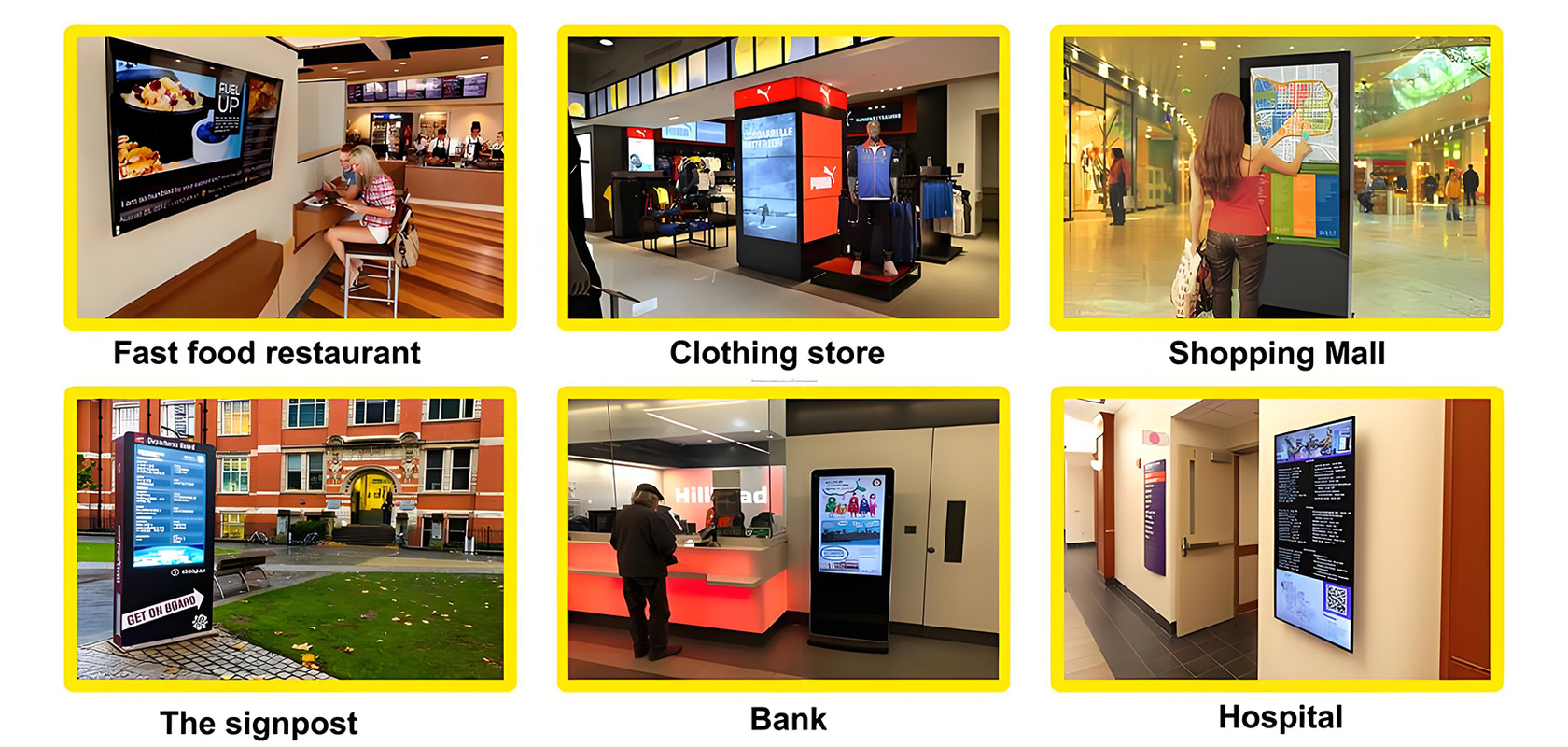
Digital Signage for Bookstores: Promoting Literary Delights.In the labyrinthine corridors of bookstores, where the scent of fresh ink mingles with the whispers of countless stories, a silent revolution is underway. This revolution is not bound by the pages of a book but rather by the dynamic pixels of digital signage. As technological advancements continue to reshape our world, the humble bookstore has found a new ally in promoting literary delights: the digital display. These sleek, versatile screens are more than just modern conveniences; they are powerful tools that enhance the browsing experience, foster a sense of community, and breathe new life into the age-old art of storytelling.

The integration of digital signage into bookstores is a testament to the harmonious coexistence of tradition and innovation. While physical books retain their irreplaceable charm, digital displays offer a complementary platform that can elevate the ambiance, inform, and inspire. Imagine walking into a bookstore where vibrant screens showcase not just the latest releases but also curated recommendations based on your reading preferences, interactive maps guiding you through the maze of genres, and even live feeds from author events held in distant corners of the store. This fusion of the tangible and the digital creates an immersive environment that caters to both the nostalgic bookworm and the tech-savvy reader.
One of the most compelling advantages of digital signage in bookstores lies in its ability to personalize the shopping experience. Through sophisticated algorithms and data analytics, these systems can gather insights into customer behavior and preferences. For instance, a screen near the entrance might greet you with a warm welcome and suggest books based on your previous purchases or browsing history. Such personalized recommendations not only enhance the likelihood of a sale but also foster a deeper connection between the reader and the bookstore, making each visit a unique and anticipated experience.
Moreover, digital signage can serve as a bridge between the physical and online realms. Many bookstores now offer e-books and audiobooks alongside their print counterparts. A well-designed digital display can seamlessly showcase these digital offerings, allowing customers to explore and purchase them directly from the screen or via a mobile app. This integration ensures that bookstores remain relevant in the digital age, catering to readers who prefer different formats without compromising the essence of the literary experience.
Beyond personalization and digital integration, digital signage also plays a pivotal role in event promotion and community engagement. Bookstores often host author readings, book clubs, and workshops, but traditional methods of promotion—such as posters and flyers—can be easily overlooked. A digital screen, however, commands attention. It can display eye-catching visuals, animated trailers, and even countdowns to upcoming events, creating a sense of excitement and urgency. By making these events more visible and engaging, digital signage helps bookstores transform into vibrant cultural hubs where readers come not just to buy books but to connect with like-minded individuals and celebrate the power of storytelling.
The interactivity of digital signage further enriches the bookstore experience. Imagine a screen that allows you to browse through book covers, read excerpts, and even watch author interviews simply by tapping or swiping. Such interactive displays encourage exploration and discovery, making the process of finding a new book as enjoyable as reading it. They also provide a platform for customer feedback and reviews, fostering a sense of community and shared enthusiasm for literature.
In addition to enhancing the customer experience, digital signage can also streamline internal operations for bookstore owners. Inventory management, for example, can be a cumbersome task, but with digital displays, updating stock information becomes a seamless process. Staff can easily update the screens to reflect new arrivals, bestsellers, and even books that are soon to be out of stock. This real-time information ensures that customers are always informed and reduces the frustration of searching for a book that has already been sold.
Furthermore, digital signage offers a sustainable alternative to traditional print materials. In an era where environmental consciousness is paramount, reducing paper usage is a commendable goal. By replacing printed signs, posters, and brochures with digital displays, bookstores can contribute to environmental sustainability while still conveying important information in a visually appealing manner. This eco-friendly approach aligns with the values of many modern consumers, who are increasingly mindful of their impact on the planet.
The versatility of digital signage also extends to creating thematic displays that can transform the ambiance of the bookstore according to seasons, holidays, or special occasions. For instance, during the holiday season, screens can showcase festive book recommendations, winter wonderland scenes, and even virtual snowfall effects. Such dynamic displays create a magical atmosphere that draws customers in and makes them feel a part of the literary world they are exploring.
Another innovative use of digital signage is in educational outreach. Bookstores can partner with local schools, libraries, and literary organizations to display educational content that complements their offerings. This could include interactive lessons on literature, writing workshops, or even virtual tours of famous literary landmarks. By becoming a resource for education and community engagement, bookstores can solidify their role as pillars of knowledge and culture within their communities.
The potential of digital signage in bookstores is limited only by our imagination. As technology continues to evolve, these displays will become even more sophisticated, offering features such as augmented reality experiences, where readers can interact with characters and scenes from their favorite books. Imagine holding up your smartphone to a book cover on a screen and seeing the characters come to life, or participating in a virtual book club discussion with readers from around the world.
In conclusion, the incorporation of digital signage into bookstores is a transformative trend that enhances the literary experience in myriad ways. It personalizes the shopping journey, integrates digital and physical offerings, promotes community engagement, streamlines operations, and contributes to sustainability. As bookstores continue to navigate the ever-changing landscape of the publishing industry, digital signage stands as a beacon of innovation, guiding them towards a future where the joy of reading is celebrated through the harmonious blend of tradition and technology. In this brave new world, the possibilities are as boundless as the imagination of the storytellers themselves.
Current article link: https://www.lcdkiosk.com/news/495.html

Tel
